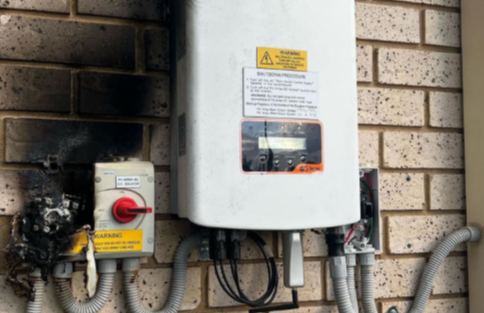How Do You Know If an Electrical Fault Is Urgent?

Electrical issues in the home or business can range from mild inconveniences to dangerous hazards. Flickering lights, strange smells, tripping circuit breakers, or outlets that don’t work may seem like minor annoyances at first—but how do you know when these signs indicate something far more serious? Recognizing the urgency of an electrical fault can help you take immediate action before it escalates into a life-threatening situation.
When in doubt, it’s always better to be cautious and call an emergency electrician. They are trained to diagnose faults quickly and prevent damage to property, injury, or worse. But first, understanding which signs suggest an urgent issue will help you make the right call at the right time.
Signs of an Urgent Electrical Fault
Several common symptoms suggest that an electrical fault needs urgent attention. One of the most obvious is a burning smell, especially one that resembles melting plastic or overheating metal. This can mean that wires or components within your walls or outlets are overheating, posing a major fire risk. If you detect any unusual odors coming from outlets or electrical panels, turn off the power if it’s safe to do so and call an emergency electrician immediately.
Another urgent sign is a sparking outlet or breaker panel. If you see sparks when you plug in an appliance or flip a switch, this could indicate a loose wire, short circuit, or a damaged outlet. These kinds of faults can quickly result in fires or electrical shock.
Frequent tripping of circuit breakers is another red flag. While occasional tripping may occur when you’re using a lot of power at once, consistent or random trips could indicate that your circuits are overloaded or that there’s a deeper wiring issue. This situation is often more than just a nuisance—it’s a warning sign that should not be ignored.
Read more: Protect Your Health with a Hassle-Free At-Home STD Check Dubai Service
When Lights Flicker or Dim Without Explanation
Flickering or dimming lights can sometimes be caused by a loose bulb or a poor connection. However, if this is happening throughout your home or in several rooms, it could point to a more widespread issue in your electrical system. Dimming lights can indicate a voltage drop, often related to wiring problems or an overloaded electrical panel.
If the flickering intensifies when certain appliances are turned on, this suggests that your system is being pushed beyond its limits. A qualified emergency electrician can assess whether your panel can handle your household’s power demand and recommend upgrades if necessary.
Shocks and Tingling Sensations
Experiencing a shock or tingling sensation when touching an appliance, switch, or outlet is a serious concern. It suggests that electricity is leaking from the intended circuit path. This could be the result of damaged insulation, faulty grounding, or wiring exposed to moisture.
Even if the sensation seems minor, it shouldn’t be ignored. Electrical shocks can become fatal under the right conditions, especially in wet environments such as bathrooms or kitchens. Any sign of current leakage should prompt you to contact an emergency electrician for immediate evaluation.
Discolored or Warm Outlets and Switches
If your wall outlets or light switches feel warm to the touch or show signs of discoloration, this indicates excessive heat buildup. Heat is a clear sign that something is wrong, often due to an overloaded circuit, poor connections, or deteriorating wiring.
This issue poses a very real fire hazard and should be addressed as quickly as possible. Turning off power to the affected area and contacting an emergency electrician can help prevent serious consequences.
Buzzing or Humming Sounds
While electrical systems do emit some noise, consistent buzzing, humming, or popping sounds are cause for concern. These noises are often heard near breaker panels, outlets, or fixtures and usually point to arcing—when electricity jumps across gaps in connections. Arcing is one of the primary causes of residential electrical fires.
If you notice these sounds, especially in combination with any of the other signs above, you should stop using the affected area and contact an emergency electrician without delay.
The Cost of Waiting
It’s easy to downplay an electrical issue if it hasn’t yet caused visible damage. However, many serious electrical faults are hidden behind walls or within circuit panels. They build slowly, deteriorating wiring and components until they finally cause a fire or electrocution. Acting early is the safest and most cost-effective option.
Bringing in an emergency electrician to identify and repair urgent faults can save lives, preserve your property, and prevent long-term damage. Their expertise ensures that your system is restored to safe working condition and complies with all safety codes.
Conclusion
Not every electrical issue is an emergency, but some carry significant risks if left unaddressed. Signs like burning smells, sparks, flickering lights, shocks, or tripping breakers are not just annoyances—they may be early warnings of serious problems. If you’re experiencing any of these symptoms, the safest choice is to consult a licensed emergency electrician right away.
Trusting your instincts and taking action quickly can mean the difference between a quick repair and a devastating electrical fire. When in doubt, never hesitate to call an emergency electrician to inspect your home and ensure everything is safe and functioning properly.





